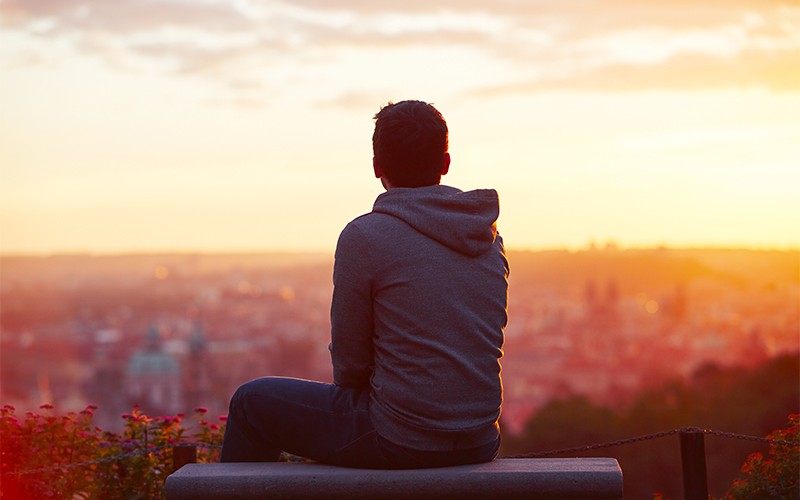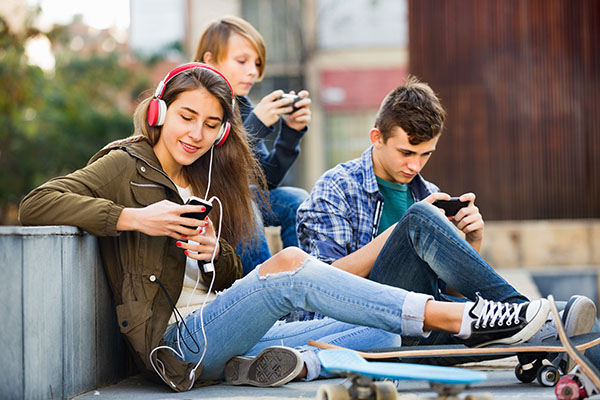Tales of endurance, humor and hope
We have already “experienced” somehow epidemics and isolation through the
great literature, for example with Manzoni and Boccaccio. In Alessandro
Manzoni’s Promessi Sposi (The Betrothed), chapters XXXI and XXXII
deal precisely with to the rapid spread of the plague that severely
affected Italy between 1629 and 1631. Giovanni Boccaccio’s Decameron, in the story of ten days of quarantine of some young
people on the outskirts of Florence, recalls a condition of isolation and
resilience that really happened in 1300.
Modern literature has also given us two “prophecies” that have somehow
anticipated what we are living today. The thriller novel The Eyes of Darkness (1989), written by American author Dean
Koontz, tells the story of a dangerous Chinese biological weapon (the
Wuhan-400 virus), which surprisingly “predicts” a virus developing flu-like
symptoms and killing those who contract it in a short time and how it will
spread. Another book more recent, End of the Days (2008) written
by Sylvia Browne, in which the winter of 2020 is described as a time when
“it will be customary to wear surgical masks and gloves due to a very
powerful flu-like illness”.
Cinematography has also contributed to present similar scenarios: the films Pandemic and 93 Days both of 2016, the first directed by
John Suits, the second directed by Steve Gukas and dedicated to the fight
against Ebola in Nigeria, are an example. Contagion (2011), a
Steven Soderbergh’s film, was also so premonitory that some actors in the
cast have been asked to produce today ads in health campaigns.
So it seems that science fiction has given us subtle warnings about a
probable world pandemic. Then there are always conspiracy theories about
it. Or there are even real prophecies: Microsoft’s leader, Bill Gates, said
at a Ted Talk conference in 2015: “If something will kill 10
million people in the next few decades, it’s more likely to be a highly
contagious virus than a war. Not missiles, but microbes.” Then there are
the “old prophecies of all times” that come back: Nostradamus has returned
to the collective imagination. On the web some users have recognized that
among the 24 quatrains on the plague published among the prophecies of
Nostradamus in 1555, there is the C. II Q. 65, which reveals the arrival of
a terrible epidemic in Italy and more precisely in Lombardy from March 4th
to July 1st. We know well, however, that the verses of Nostradamus are so
enigmatic that they can be easily applied ad hoc.
Meanwhile on the web a meme has become very popular: it says “1720 Plague,
1820 Cholera, 1920 Spanish flu, 2020 Covid”. So I won’t be there for the
next one! Speaking of irony, it is good to remind that irony has always
saved us. And if our freedom begins with irony, at least according to
Victor Hugo, do we really need the big media to tell us what and how to
think?
The ability not to lose heart and keep oneself in a good mood goes hand by
hand with the will to survive. Yes, a positive attitude makes the
difference when confronting problems; above all, when we are inundated
every day with negative.
Positive thinking is certainly linked to longevity. Various scientific
studies have shown how optimism can also affect a person’s physical health:
the Division of Adult Psychiatry, in a study conducted with a
large span of time, between 1960 and 2000, has shown that optimism leads to
better physical and mental health.
Are we just rediscovering in these hard times what we have taken for
granted?
Everything stops outside, but inside our souls travel miles: we rediscover
the importance of affection and love, the value of having a family by our
side, we create priceless memories with our children and friends, we
rediscover the pleasure of homemade things, the joy of small things, a
moment of relaxation, the pleasure of watching a movie together, we
understand the value of time… which is the most precious gift that can be
given to us. A gift that cannot be kept, but can be used well.
We have also seen that somehow we could solve the problem of traffic and
pollution, food waste, gambling addiction and migrants, we have improved
the fight against tax evasion and the traceability of payments, we have
seen that we can encourage digitalization and computer literacy, give a
strong boost to e-commerce, the advantages of smart working and e-learning.
Difficulties can divide, but almost always unite… and they have the power
to trigger small and large gestures of solidarity of which we can find
concrete evidence today. Starting from Naples, where the “Solidarity
Baskets” in which people can put bread and those who need it can take it,
quickly went around the world, or the video of the Spanish personal trainer
in Seville who offered to train the residents of the nearby balconies from
the roof of his building. But there is also the initiative of Lara and Ste,
greengrocers of Carcare (Savona), who invite those who can not pay to take
what they need, or the announcement of Carlo D’Amico, interior decorator,
who offers to bring the shopping bags to the elderly in his apartments to
avoid them to go out.
The creativity that comes from difficulties is like a flower of hope that
is born on the rock. An energy that has already stimulated the birth of
many virtuous initiatives to face the quarantine together: just as Getty Images did with the challenge “Recreate art at home”, which
proposes to reconstruct some of the most famous works of art with an
amateur shot. Because, let’s face it, beauty will save the world… a
strange world, that runs fast, that fills our days and agendas with many
things to do, that now we see they weren’t so important.
Then one day everything stops, we get to know the quarantine and its high
price and we understand that “We are all on the same boat”. Staying at home
is also teaching us the value of being quiet, of silence, of feeling good
about ourselves, all things that once we might have called “boredom” but
which today represent precious moments to reflect, to build ideas, to look
better inside ourselves.
In this way we understand that we are not alone and we belong to the same
community and not just a heap of hurried greetings or handshakes during a
chance encounter. We are learning to be more supportive and sociable with
others, not to look the other way, to look our neighbor in the face, to
respect the line, to wash our hands better, to really observe the laws and
give less importance to football. But how long will we remember it? How
long is forever, Alice asked the White Rabbit: “Sometimes just for a
second”.
We leave you with a small gift, a video that Familyandmedia has produced exclusively for you, dear readers, to give you a smile and
hope during these long and difficult days of quarantine. We will come back
to embrace and love life even more than before. Enjoy life, enjoy this
moment of love. Click here to watch the video.















